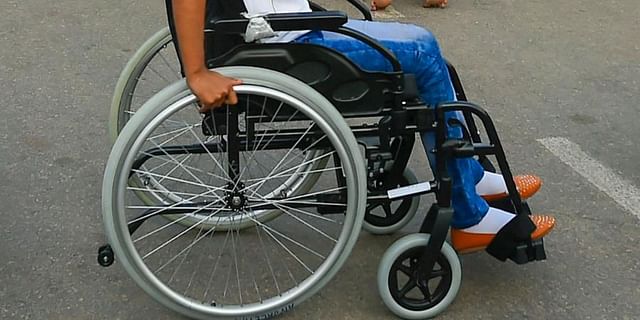
Only on-field actors, not faceless babus, can serve TN’s differently-abled

The Tamil Nadu government’s decision to temporarily withdraw its order announcing the reconstituted welfare board for differently-abled people has once again highlighted the challenges in serving the community.
The move – announced by the Minister for Social Welfare and Women’s Rights, Geetha Jeevan on Sunday – comes following criticism that most non-official members of the board have little knowledge of the issues faced by the differently-abled.
Of the six non-official members, at least four are public servants, and three are from Karur, the district of one of the most powerful ministers in the government, V Senthil Balaji.
“When public servants become non-official members of a welfare board, they cannot raise their voice in favour of the poor and the disabled,” said S Namburajan, state general secretary of Tamil Nadu Association for the Rights of All Types of Differently-Abled and Caregivers.
“The non-official members of the board should have on-field experience, so they can understand the issues related to the differently-abled,” added Namburajan, who served as a member of the board between 2007 and 2011.
Also read: Meet TN’s first differently-abled politician to head a party’s district unit
CM takes charge again
Former chief minister and DMK patriarch M Karunanidhi is well regarded by the differently-abled community. In 2007 it was Karunanidhi who coined the term ‘maatru thiranaaligal’ (differently-abled or differently skilled). Before that they were called ‘udal oonamutror’ (physically challenged or disabled).
Karunanidhi constituted the welfare board the same year. It complements the work of the government’s Department of Welfare of Differently Abled Persons and helps implement and oversee various schemes.
“He [Karunanidhi] was the first CM in India to create an exclusive department dedicated to serving the differently-abled population, and he was the first minister to hold this portfolio. Later the portfolio was given to P Geetha Jeevan,” said C Govinda Krishnan, founder of Nethrodaya, an organisation working for the visually impaired.
Now Karunanidhi’s son and the current Chief Minister, MK Stalin, has again brought the board under the CM’s direct supervision. Krishnan said this move creates its own challenges, as it is not always possible to secure a meeting with the CM.
Representatives of other constituencies can often meet ministers and put forth their grievances, and get feedback, he said. “However, representatives and members of this board cannot always do that.”
Lack of representation
According to Krishnan, the board should be reconstituted with new members every five years, and meet twice a year. The welfare board was reconstituted for the second time in 2016.
“In 2017, the board met only once. After that it didn’t conduct any meetings. Earlier, there were only seven categories of disability. But after the passage of the Rights of Persons with Disabilities Act, 2016, the number of categories was increased to 21. The recently formed board lacks representation from most of the categories. Similarly, the board has three members from one district alone. Instead it should have wide representation from across the state,” Krishnan said.
According to Namburajan, officials may have felt that if the board had field activists, they would make their case more forcefully.
“The board has doctors as members. In many cases government doctors refuse to provide disability certificates, or don’t do evaluations properly,” he said.
No empathy, only apathy
As per the 2011 Census, the state had 11.79 lakh differently-abled people. This constitutes 1.63 per cent of the state’s population and 4.4 per cent of the differently-abled population of the country. As per a policy note from 2020-2021, the state has 13.35 lakh differently-abled people.
“The government can have non-official members from established NGOs. The state has many large collective bodies representing the differently-abled. At least the government could have consulted us before appointing the members,” said TMN Deepak, founder of December 3 Movement.
One board member said he had no idea why the government order has been withdrawn.
“We believe the GO has been withdrawn, but the board has not been dissolved. We heard the government is going to add more members,” he said.
Also read: Appoint commissioners, form advisory boards for welfare of differently-abled: Centre to states
Johnny Tom Varghese, who heads the Commissionerate for the Welfare of the Differently Abled, told The Federal that the decision reconstitute the board was taken at the secretary level.
The secretary for the department, R Lalvena, was not available for comment.

